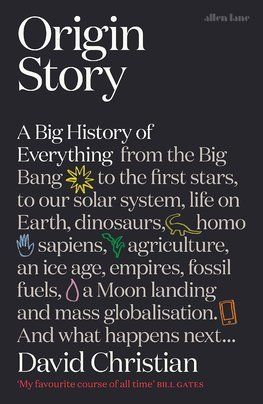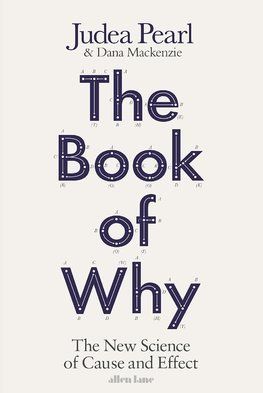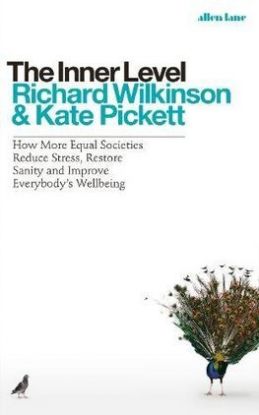Allen Lane strana 5 z 17
vydavateľstvo
Enemies and Neighbours
On the centenary of Britain's Balfour Declaration -promising a Jewish 'national home' in Palestine- comes a new history of the Palestinians and Israelis. Black has written a gripping account of what was doomed to be a hostile relationship from the beginning. Bringing balance and perspective to this controversial conflict, this is essential reading for anyone wishing to understand the story so far.
Vypredané
29,93 €
31,50 €
Beneath Another Sky
'He writes history like nobody else. He thinks like nobody else ... He sees the world as a whole, with its limitless fund of stories' Byan Appleyard, Sunday Times Where have the people in any particular place actually come from? What are the historical complexities in any particular place? This evocative historical journey around the world shows us. 'Human history is a tale not just of constant change but equally of perpetual locomotion', writes Norman Davies. Throughout the ages, men and women have endlessly sought the greener side of the hill. Their migrations, collisions, conquests and interactions have given rise to the spectacular profusion of cultures, races, languages and polities that now proliferates on every continent. This incessant restlessness inspired Davies's own. After decades of writing about European history, and like Tennyson's ageing Ulysses longing for one last adventure, he embarked upon an extended journey that took him right round the world to a score of hitherto unfamiliar countries. His aims were to test his powers of observation and to revel in the exotic, but equally to encounter history in a new way. Beneath Another Sky is partly a historian's travelogue, partly a highly engaging exploration of events and personalities that have fashioned today's world - and entirely sui generis. Davies's circumnavigation takes him to Baku, the Emirates, India, Malaysia, Mauritius, Tasmania, Tahiti, Texas, Madeira and many places in between. At every stop, he not only describes the current scene but also excavates the layers of accumulated experience that underpin the present. He tramps round ancient temples and weird museums, summarises the complexity of Indian castes, Austronesian languages and Pacific explorations, delves into the fate of indigenous peoples and of a missing Malaysian airliner, reflects on cultural conflict in Cornwall, uncovers the Nazi origins of Frankfurt airport and lectures on imperialism in a desert oasis. 'Everything has its history', he writes, 'including the history of finding one's way or of getting lost.' The personality of the author comes across strongly - wry, romantic, occasionally grumpy, but with an endless curiosity and appetite for knowledge. As always, Norman Davies watches the historical horizon as well as what is close at hand, and brilliantly complicates our view of the past.
Vypredané
26,55 €
27,95 €
12 Rules for Life
What are the most valuable things that everyone should know?
Acclaimed clinical psychologist Jordan Peterson has influenced the modern understanding of personality, and now he has become one of the world's most popular public thinkers, with his lectures on topics from the Bible to romantic relationships to mythology drawing tens of millions of viewers. In an era of unprecedented change and polarizing politics, his frank and refreshing message about the value of individual responsibility and ancient wisdom has resonated around the world.
In this book, he provides twelve profound and practical principles for how to live a meaningful life, from setting your house in order before criticising others to comparing yourself to who you were yesterday, not someone else today. Happiness is a pointless goal, he shows us. Instead we must search for meaning, not for its own sake, but as a defence against the suffering that is intrinsic to our existence.
Drawing on vivid examples from the author's clinical practice and personal life, cutting edge psychology and philosophy, and lessons from humanity's oldest myths and stories, 12 Rules for Life offers a deeply rewarding antidote to the chaos in our lives: eternal truths applied to our modern problems.
Vypredané
22,75 €
23,95 €
Of Women
A powerful, urgent and timely polemic on why women still need equality, and how we get there
It is the greatest human rights abuse on the planet. It blights first and developing worlds, rich and poor women's health, wealth, education, representation, opportunity and security everywhere. It is no exaggeration to describe it as an 'apartheid', but not limited to one country or historical period. Gender injustice, Shami Chakrabarti shows, is an ancient and continuing wrong that is millennial in duration and global in reach.
As we move forward in the twenty-first century, a time of crises the world over, Shami Chakrabarti lays out the huge challenges we face with honesty and clarity. We have not yet done enough to create a more equal world: one where women and men share power, responsibility and opportunity. One that is potentially happier and more peaceful. One where no life is wasted, and everyone has a chance to fulfil their potential. Instead, we've been playing around at the edges. What's needed now is radical change.
From the disparity in the number of births to issues of schooling, work, ownership, faith, political representation and international diplomacy, Of Women outlines what needs fixing and makes clear, inspiring proposals about what we do next, putting women's rights at the centre of the progressive political agenda.
Vypredané
21,38 €
22,50 €
Chernobyl
The gripping story of the Chernobyl nuclear disaster that marked the beginning of the end of the Soviet Union from an acclaimed historian and writer
On the morning of 26 April 1986 Europe witnessed the worst nuclear disaster in history: the explosion of a reactor at the Chernobyl nuclear power plant in Soviet Ukraine. The outburst put the world on the brink of nuclear annihilation. In the end, less than five percent of the reactor's fuel escaped, but that was enough to contaminate over half of Europe with radioactive fallout.
In Chernobyl, Serhii Plokhy recreates these events in all of their drama, telling the stories of the firefighters, scientists, engineers, workers, soldiers, and policemen who found themselves caught in a nuclear Armageddon and succeeded in doing the seemingly impossible: extinguishing the nuclear inferno and putting the reactor to sleep. While it is clear that the immediate cause of the accident was a turbine test gone wrong, Plokhy shows how the deeper roots of Chernobyl lay in the nature of the Soviet political system and the flaws of its nuclear industry. A little more than five years later, the Soviet Union would fall apart, destroyed from within by its unsustainable communist ideology and the dysfunctional managerial and economic systems laid bare in the wake of the disaster.
A poignant, fast paced account of the drama of heroes, perpetrators, and victims, Chernobyl is the definitive history of the world's worst nuclear disaster.
Vypredané
23,70 €
24,95 €
Origin Story
How did we get from the Big Bang to today's staggering complexity, in which seven billion humans are connected into networks powerful enough to transform the planet? And why, in comparison, are our closest primate relatives reduced to near-extinction?
Big History creator David Christian gives the answers in a mind-expanding cosmological detective story told on the grandest possible scale. He traces how, during eight key thresholds, the right conditions have allowed new forms of complexity to arise, from stars to galaxies, Earth to homo sapiens, agriculture to fossil fuels. This last mega-innovation gave us an energy bonanza that brought huge benefits to mankind, yet also threatens to shake apart everything we have created.
This global origin story is one that we could only begin to tell recently, thanks to the underlying unity of modern knowledge. Panoramic in scope and thrillingly told, Origin Story reveals what we learn about human existence when we consider it from a universal scale.
Vypredané
17,58 €
18,50 €
The Book of Why
A pioneer of artificial intelligence shows how the study of causality revolutionized science and the world
'Correlation does not imply causation.' This mantra was invoked by scientists for decades in order to avoid taking positions as to whether one thing caused another, such as smoking and cancer and carbon dioxide and global warming. But today, that taboo is dead. The causal revolution, sparked by world-renowned computer scientist Judea Pearl and his colleagues, has cut through a century of confusion and placed cause and effect on a firm scientific basis. Now, Pearl and science journalist Dana Mackenzie explain causal thinking to general readers for the first time, showing how it allows us to explore the world that is and the worlds that could have been. It is the essence of human and artificial intelligence. And just as Pearl's discoveries have enabled machines to think better, The Book of Why explains how we can think better.
Vypredané
28,45 €
29,95 €
Bullshit Jobs
'The most influential radical political thinker of the moment' - New Yorker
Back in 1930, the economist John Maynard Keynes prophesied that by the century's end, technology would see us all working fifteen-hour weeks. But instead, something curious happened. Today, average working hours have not decreased, but increased. And now, across the developed world, three-quarters of all jobs are in services or admin, jobs that don't seem to add anything to society: bullshit jobs. In Bullshit Jobs, David Graeber explores how this phenomenon - one more associated with the 20th-century Soviet Union, but which capitalism was supposed to eliminate - has happened. In doing so, he looks at how we value work, and how, rather than being productive, work has become an end in itself; the way such work maintains the current broken system of finance capital; and, finally, how we can get out of it.
Praise for The Democracy Project: 'Clear, pungent and right ... a compact and incisive account of why capitalism has run with such a smash into the buffers' - Times Higher Education
'Captures the joys and fears of a movement' - Observer
Vypredané
23,70 €
24,95 €
Chopins Piano
In November 1838 Frédéric Chopin, George Sand and her two children sailed to Majorca to escape the Parisian winter. They settled in an abandoned monastery at Valldemossa in the mountains above Palma, where Chopin finished what would eventually be recognised as one of the great and revolutionary works of musical Romanticism - his 24 Preludes. There was scarcely a decent piano on the island (these were still early days in the evolution of the modern instrument), so Chopin worked on a small pianino made by a local craftsman, which remained in their monastic cell for seventy years after he and Sand had left.
This brilliant and unclassifiable book traces the history of Chopin's 24 Preludes through the instruments on which they were played, the pianists who interpreted them and the traditions they came to represent. Yet it begins and ends with the Majorcan pianino, which during the Second World War assumed an astonishing cultural potency as it became, for the Nazis, a symbol of the man and music they were determined to appropriate as their own.
The unexpected hero of the second part of the book is the great keyboard player and musical thinker Wanda Landowska, who rescued the pianino from Valldemossa in 1913, and who would later become one of the most influential musical figures of the twentieth century. Kildea shows how her story - a compelling account based for the first time on her private papers - resonates with Chopin's, while simultaneously distilling part of the cultural and political history of Europe and the United States in the central decades of the century. Kildea's beautifully interwoven narratives, part cultural history and part detective story, take us on an unexpected journey through musical Romanticism and allow us to reflect freshly on the changing meaning of music over time.
Vypredané
28,45 €
29,95 €
The Inner Level
Richard Wilkinson and Kate Pickett's The Spirit Level, now published in more than twenty languages, has been one of the most influential non-fiction books published in the last decade, showing conclusively how less equal societies fare worse than more equal ones across a whole range of social measures - health, education, levels of violence, life expectancy and child wellbeing - and initiating the enormous public attention now given to the impacts of inequality.
Based on an equally impressive range of data and analysis, The Inner Level now shows the impact inequality has on individuals: how it affects us psychologically, makes social relations more stressful, undermines self-confidence and distorts natural differences in personal abilities. It demonstrates that societies based on fundamental equalities, sharing and reciprocity produce much higher levels of wellbeing than those based on excessive individualism, competitiveness and social aggression. Like its predecessor, The Inner Level will transform ideas of how we should organise the way we live together.
Vypredané
23,70 €
24,95 €
A Certain Idea of France - The Life of Charles de Gaulle
The definitive biography of the greatest French statesman of modern times
In six weeks in the early summer of 1940, France was over-run by German troops and quickly surrendered. The French government of Marshal Pétain sued for peace and signed an armistice. One little-known junior French general, refusing to accept defeat, made his way to England. On 18 June he spoke to his compatriots over the BBC, urging them to rally to him in London. 'Whatever happens, the flame of French resistance must not be extinguished and will not be extinguished.' At that moment, Charles de Gaulle entered into history.
For the rest of the war, de Gaulle frequently bit the hand that fed him. He insisted on being treated as the true embodiment of France, and quarrelled violently with Churchill and Roosevelt. He was prickly, stubborn, aloof and self-contained. But through sheer force of personality and bloody-mindedness he managed to have France recognised as one of the victorious Allies, occupying its own zone in defeated Germany. For ten years after 1958 he was President of France's Fifth Republic, which he created and which endures to this day. His pursuit of 'a certain idea of France' challenged American hegemony, took France out of NATO and twice vetoed British entry into the European Community. His controversial decolonization of Algeria brought France to the brink of civil war and provoked several assassination attempts.
Julian Jackson's magnificent biography reveals this the life of this titanic figure as never before. It draws on a vast range of published and unpublished memoirs and documents - including the recently opened de Gaulle archives - to show how de Gaulle achieved so much during the War when his resources were so astonishingly few, and how, as President, he put a medium-rank power at the centre of world affairs. No previous biography has depicted his paradoxes so vividly. Much of French politics since his death has been about his legacy, and he remains by far the greatest French leader since Napoleon.
Vypredané
40,38 €
42,50 €
The Rise and Fall of the British Nation
From the acclaimed author of Britain's War Machine and The Shock of the Old, a bold reassessment of Britain's twentieth century.
It is usual to see the United Kingdom as an island of continuity in an otherwise convulsed and unstable Europe; its political history a smooth sequence of administrations, from building a welfare state to coping with decline. Nobody would dream of writing the history of Germany, say, or the Soviet Union in this way.
David Edgerton's major new history breaks out of the confines of traditional British national history to redefine what it was to British, and to reveal an unfamiliar place, subject to huge disruptions. This was not simply because of the world wars and global economic transformations, but in its very nature. Until the 1940s the United Kingdom was, Edgerton argues, an exceptional place: liberal, capitalist and anti-nationalist, at the heart of a European and global web of trade and influence. Then, as its global position collapsed, it became, for the first time and only briefly, a real, successful nation, with shared goals, horizons and industry, before reinventing itself again in the 1970s as part of the European Union and as the host for international capital, no longer capable of being a nation.
Packed with surprising examples and arguments, The Rise and Fall of the British Nation gives us a grown-up, unsentimental history which takes business and warfare seriously, and which is crucial at a moment of serious reconsideration for the country and its future.
Vypredané
32,78 €
34,50 €
Trans-Europe Express
A searching, timely account of the condition of contemporary Europe, told through the landscapes of its cities
Over the past twenty years European cities have become the envy of the world: a Kraftwerk Utopia of historic centres, supermodernist concert halls, imaginative public spaces and futuristic egalitarian housing estates which, interconnected by high-speed trains traversing open borders, have a combination of order and pleasure which is exceptionally unusual elsewhere.
In Trans-Europe Express, Owen Hatherley sets out to explore the European city across the entire continent, to see what exactly makes it so different to the Anglo-Saxon norm - the unplanned, car-centred, developer-oriented spaces common to the US, Ireland, UK and Australia. Attempting to define the European city, Hatherley finds a continent divided both within the EU and outside it.
'The latest heir to Ruskin.' - Boyd Tonkin, Independent
'Hatherley is the most informed, opinionated and acerbic guide you could wish for.' - Hugh Pearman, Sunday Times
'Can one talk yet of vintage Hatherley? Yes, one can. Here are all the properties that have made him one of the most distinctive writers in England - not just 'architectural writers', but writers full stop: acuity, contrariness, observational rigour, frankness and beautifully wrought prose.' - Jonathan Meades
Vypredané
18,00 €
18,95 €
Crashed
The definitive history of the Great Financial Crisis, from the acclaimed author of The Deluge and The Wages of Destruction.
In September 2008 the Great Financial Crisis, triggered by the collapse of Lehman brothers, shook the world. A decade later its spectre still haunts us. As the appalling scope and scale of the crash was revealed, the financial institutions that had symbolised the West's triumph since the end of the Cold War, seemed - through greed, malice and incompetence - to be about to bring the entire system to its knees.
Crashed is a brilliantly original and assured analysis of what happened and how we were rescued from something even worse - but at a price which continues to undermine democracy across Europe and the United States. Gnawing away at our institutions are the many billions of dollars which were conjured up to prevent complete collapse. Over and over again, the end of the crisis has been announced, but it continues to hound us - whether in Greece or Ukraine, whether through Brexit or Trump. Adam Tooze follows the trail like no previous writer and has written a book compelling as history, as economic analysis and as political horror story.
Vypredané
30,88 €
32,50 €
Roller-Coaster
From one of Britain's most distinguished historians and the bestselling author of Hitler, this is the definitive history of a divided Europe, from the aftermath of the Second World War to the present.
After the overwhelming horrors of the first half of the 20th century, described by Ian Kershaw in his previous book as having gone 'to Hell and back', the years from 1950 to 2017 brought peace and relative prosperity to most of Europe. Enormous economic improvements transformed the continent. The catastrophic era of the world wars receded into an ever more distant past, though its long shadow continued to shape mentalities.
Europe was now a divided continent, living under the nuclear threat in a period intermittently fraught with anxiety. Europeans experienced a 'roller-coaster ride', both in the sense that they were flung through a series of events which threatened disaster, but also in that they were no longer in charge of their own destinies: for much of the period the USA and USSR effectively reduced Europeans to helpless figures whose fates were dictated to them by the Cold War. There were striking successes - the Soviet bloc melted away, dictatorships vanished and Germany was successfully reunited. But accelerating globalization brought new fragilities. The impact of interlocking crises after 2008 was the clearest warning to Europeans that there was no guarantee of peace and stability.
In this remarkable book, Ian Kershaw has created a grand panorama of the world we live in and where it came from. Drawing on examples from all across the continent, Roller-Coaster will make us all rethink Europe and what it means to be European.
Vypredané
30,88 €
32,50 €
Money and Government
The dominant view in economics is that money and government should play only a minor role in economic life. Money, it is claimed, is nothing more than a medium of exchange; and economic outcomes are best left to the 'invisible hand' of the market. The view taken in this important new book is that the omnipresence of uncertainty make money and government essential features of any market economy. One reason we need money is because we don't know what the future will bring. Government - good government - makes the future more predictable and therefore reduces this kind of demand for money.
After Adam Smith orthodoxy persistently espoused non-intervention, but the Great Depression of 1929-32 stopped the artificers of orthodox economics in their tracks. A precarious balance of forces between government, employers, and trade unions enabled Keynesian economics to emerge as the new policy paradigm of the Western world. However, the stagflation of the 1970s led to the rejection of Keynesian policy and a return to small-state neoclassical orthodoxy. Thirty years later, the 2008 global financial crash was severe enough to have shaken the re-vamped classical orthodoxy, but, curiously, this did not happen. Once the crisis had been overcome - by Keynesian measures taken in desperation - the pre-crash orthodoxy was reinstated, undermined but unbowed. Since 2008, no new 'big idea' has emerged, and orthodoxy has maintained its sway, enacting punishing austerity agendas that leave us with a still-anaemic global economy.
This book aims to familiarise the reader with essential elements of Keynes's 'big idea'. By showing that much of economic orthodoxy is far from being the hard science it claims to be, it aims to embolden the next generation of economists to break free from their conceptual prisons and afford money and government the starring roles in the economic drama that they deserve.
Vypredané
26,13 €
27,50 €















